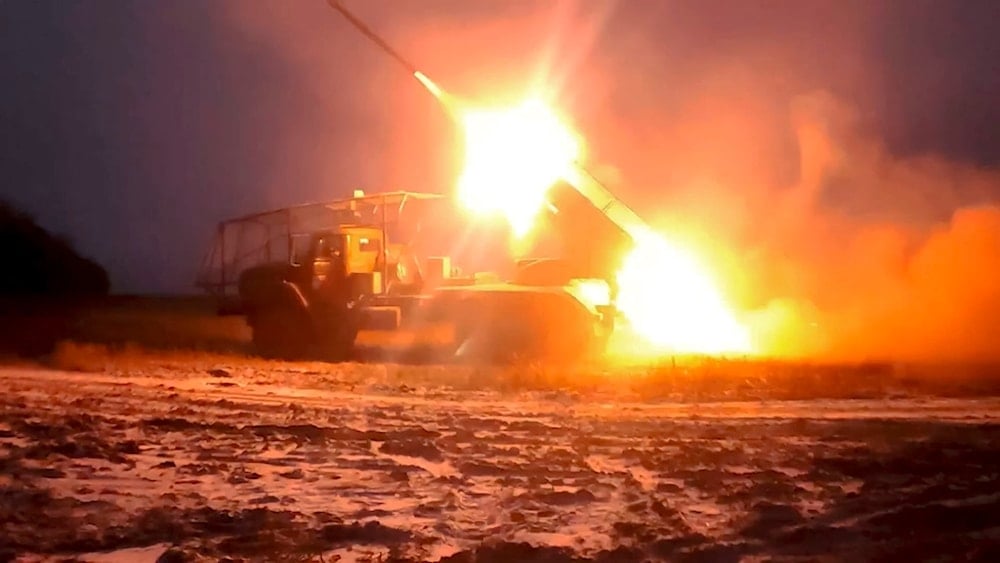Russian MoD reports heavy Ukrainian losses in Kursk offensive
Since the start of the offensive, Russian officials estimate Ukraine has lost up to 54,000 soldiers and 313 tanks in this direction.
-

In this photo, taken from video and released by the Russian Defense Ministry Press Service on Thursday, January 16, 2025, a Russian "Grad" self-propelled multiple rocket launcher fires towards Ukrainian positions in Kursk region of Russia (Russian Defense Ministry Press Service via AP)
The Ukrainian armed forces have suffered significant losses in the Kursk direction, with the Russian Defense Ministry reporting on Wednesday that over 390 soldiers were killed in the past 24 hours.
"Over the past 24 hours, the Ukrainian armed forces lost more than 390 service people, four tanks, an armored personnel carrier, 11 armored combat vehicles, 12 cars, six artillery pieces, four mortars, an electronic warfare station, one unit of engineering equipment, as well as six UAV control points and two ammunition depots have been destroyed," the ministry stated. Since the start of the offensive, Russian officials estimate Ukraine has lost up to 54,000 soldiers and 313 tanks in this direction.
Energy warfare
This development comes amidst broader conflict dynamics. Ukraine's attempts to disrupt Russian energy infrastructure were thwarted when Russian air defenses intercepted nine drones targeting the TurkStream compressor station in Krasnodar Territory. Despite minor damage, gas supplies to Europe through the pipeline remain uninterrupted. Gazprom has ensured the station operates normally.
Strategic shifts
Meanwhile, Western military aid to Ukraine has faced constraints, with US weapons stockpiles dwindling with nearly $6 billion under the Presidential Drawdown Authority set to expire without congressional action.
Domestically, US political dynamics are also shifting. House Speaker Mike Johnson recently removed pro-Ukraine Republican Mike Turner as chair of the Intelligence Committee, signaling a recalibration of US policy under the Trump administration. Secretary of State nominee Marco Rubio has announced plans for "bold diplomacy" to resolve the conflict, stressing the need for concessions from both sides.
Energy strains
The war's impact on energy supplies is being felt across Europe, with the expiration of the Russian-Ukrainian gas transit agreement on January 1, leading to a loss of 15 billion cubic meters of gas annually. The Balkan Stream pipeline now serves as the sole remaining route for Russian gas to Europe, further increasing reliance on alternative transit routes like TurkStream. Hungarian officials have raised concerns about rising energy prices due to US sanctions on Russian and Serbian energy sectors.
On the ground in Ukraine, critical industrial facilities are also at risk. The Pokrovsk coking coal mine, essential for Ukraine's steel industry, has halted operations as Russian forces advance.
Read more: Ukraine's lithium wealth diminishes as key deposits fall to Russia

 3 Min Read
3 Min Read









